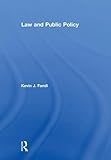All Categories



Philosophical Foundations of Constitutional Law (Philosophical Foundations of Law)
Share Tweet
Get it between 2024-12-31 to 2025-01-07. Additional 3 business days for provincial shipping.
*Price and Stocks may change without prior notice
*Packaging of actual item may differ from photo shown
- Electrical items MAY be 110 volts.
- 7 Day Return Policy
- All products are genuine and original
- Cash On Delivery/Cash Upon Pickup Available








About Philosophical Foundations Of Constitutional Law
Product Description Constitutional law has been and remains an area of intense philosophical interest, and yet the debate has taken place in a variety of different fields with very little to connect them. In a collection of essays bringing together scholars from several constitutional systems and disciplines, Philosophical Foundations of Constitutional Law unites the debate in a study of the philosophical issues at the very foundations of the idea of a constitution: why one might be necessary; what problems it must address; what problems constitutions usually address; and some of the issues raised by the administration of a constitutional regime. Although these issues of institutional design are of abiding importance, many of them have taken on new significance in the last few years as law-makers have been forced to return to first principles in order to justify novel practices and arrangements in their constitutional orders. Thus, questions of constitutional 'revolutions', challenges to the demands of the rule of law, and the separation of powers have taken on new and pressing importance. The essays in this volume address these questions, filling the gap in the philosophical analysis of constitutional law. The volume will provoke specialists in philosophy, politics, and law to develop new philosophically grounded analyses of constitutional law, and will be a valuable resource for graduate students in law, politics, and philosophy. Review "The book... is a successful introduction to the central questions [of constitutional law]. It provides intellectual roadmaps as well as explicit encouragement along the way to scholars who might wish to engage in this field of enquiry. It incorporates useful methodological discussions of philosophical, legal, and comparative common-law jurisdictions." - S. Tarik Olcay, The Cambridge Law Journal"This is a wonderful collection of unfailingly engaging and interesting essays, virtually every one of them making a substantial contribution to the subject matter it discusses. The book will serve as a landmark in modern constitutional theory and its influence will inevitably reach far into the future and wide into legal systems of the world."- Pavlos Eleftheriadis, The Modern Law Review About the Author David Dyzenhaus, University Professor of Law and Philosophy, University of Toronto, Malcolm Thorburn, Associate Professor of Law, University of TorontoDavid Dyzenhaus is University Professor of Law and Philosophy at the University of Toronto. He is the author of many books and essays at the intersection of political philosophy, legal philosophy, and public law theory.Malcolm Thorburn is Associate Professor of Law at the University of Toronto. Until 2012, he held the Canada Research Chair in Crime, Security and Constitutionalism at Queen's University. He has been a visiting fellow at the Australian National University (2008); Ludwig Maximilians University, Munich (2011); the French National Centre for Criminology (CESDIP), Paris (2011); and Magdalen College, Oxford (2011-12). He is an associate editor of the New Criminal Law Review and a member of the editorial boards of Law and Philosophy and Criminal Law and Philosophy.




















